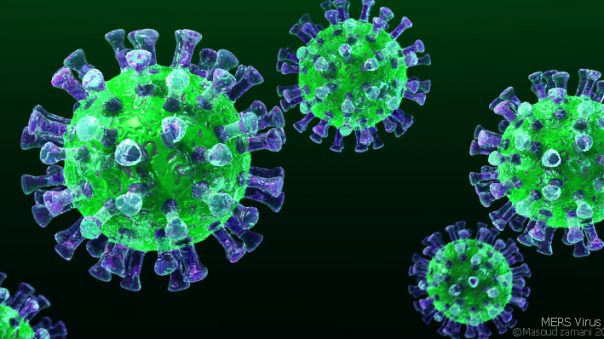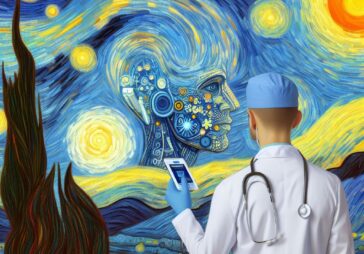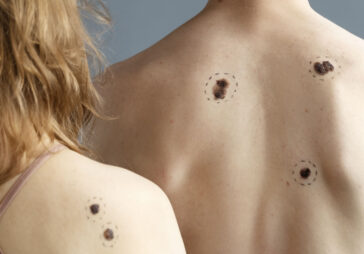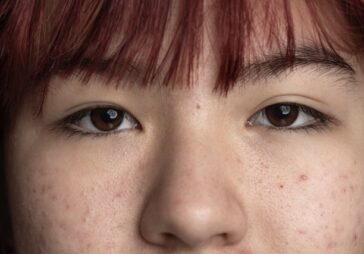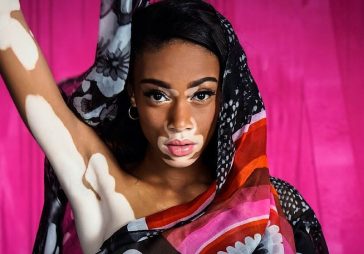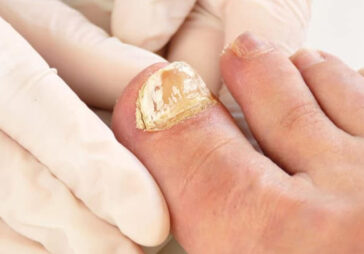COVID-19 – as the doctors called the new coronavirus infection.
The most common symptoms of coronavirus disease (COVID-19) are fever (above 38.5 degrees), tiredness, and dry cough.
But what if these symptoms are accompanied by the skin rash? Is the rash a symptom of a coronavirus infection or does it have nothing to do with it?
Currently, the following types of skin lesions (possibly associated with coronavirus infection) are observed:
1. Rash possibly associated with coronavirus infection.
If the following skin lesions appear in the background of fever, coughing, and sore throat, they can be examined as a sign of coronavirus infection:
- Hives. This is the best-known manifestation of a respiratory viral infection. Itchy pink-red flat blisters appear on the face and other parts of the body.
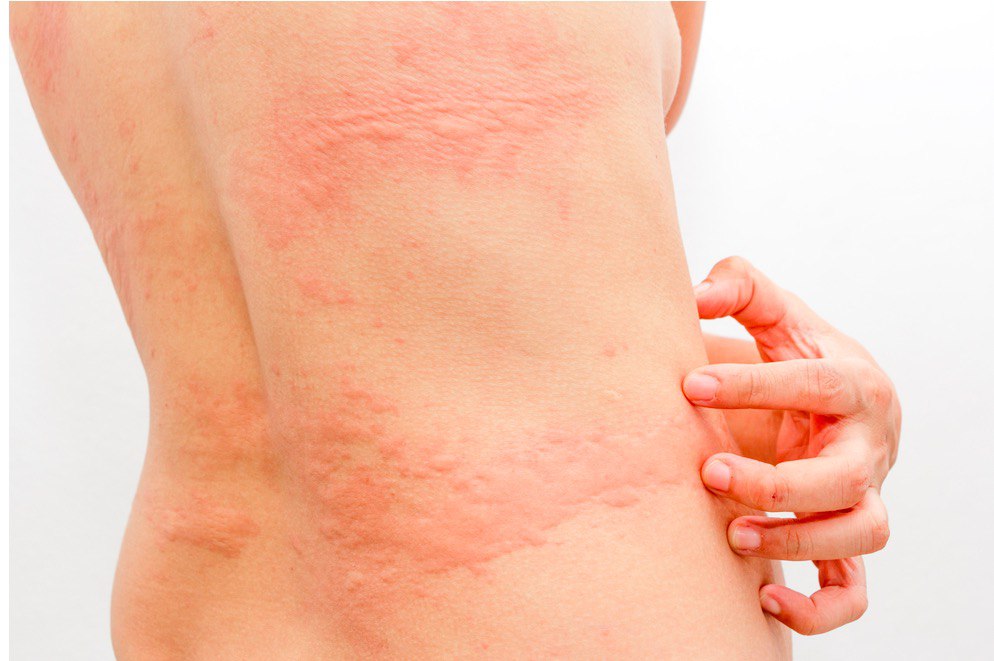
- Erythema multiforme. The disease is clinically characterized by the presence of pathological lesions in the form of a target, which can be described as round erythematous rings with an external erythematic border and a central blister. Often is accompanied by fever. Mild symptoms of an upper respiratory tract infection may be noted.
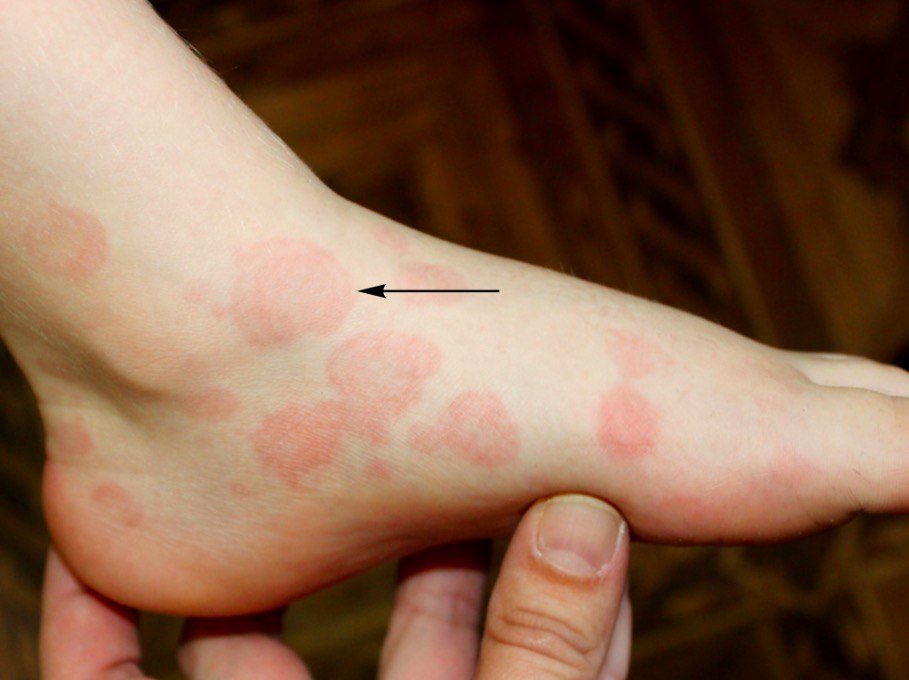
- Urticarial vasculitis. It is characterized by inflamed and reddened patches or weals on the skin that appears to resemble urticaria. Allergic vasculitis is most often manifested by a rash on the hips, legs, feet. It is characterized by general malaise. Some patients have a specific itchy rash, redness, eczema.
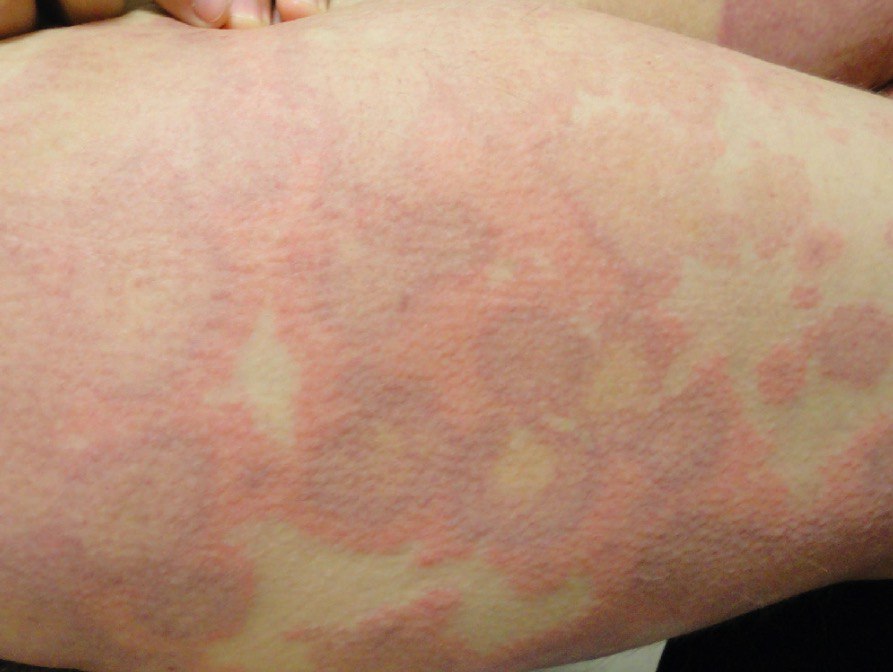
2. Rash as a result of an adverse reaction to drugs.
Some common examples of mild adverse effects related to drugs include: The aforementioned skin lesions may also be the result of an adverse reaction to medications. During the pandemic, people use more medicines than usual, such as painkillers and antipyretics (paracetamol), antibiotics, food additives, various tinctures, and herbs solutions… Patients may also suffer from various types of skin lesions after taking experimental drugs against COVID-19, such as chloroquine, azithromycin, and specific virus inhibitors (for example, remdesivir).
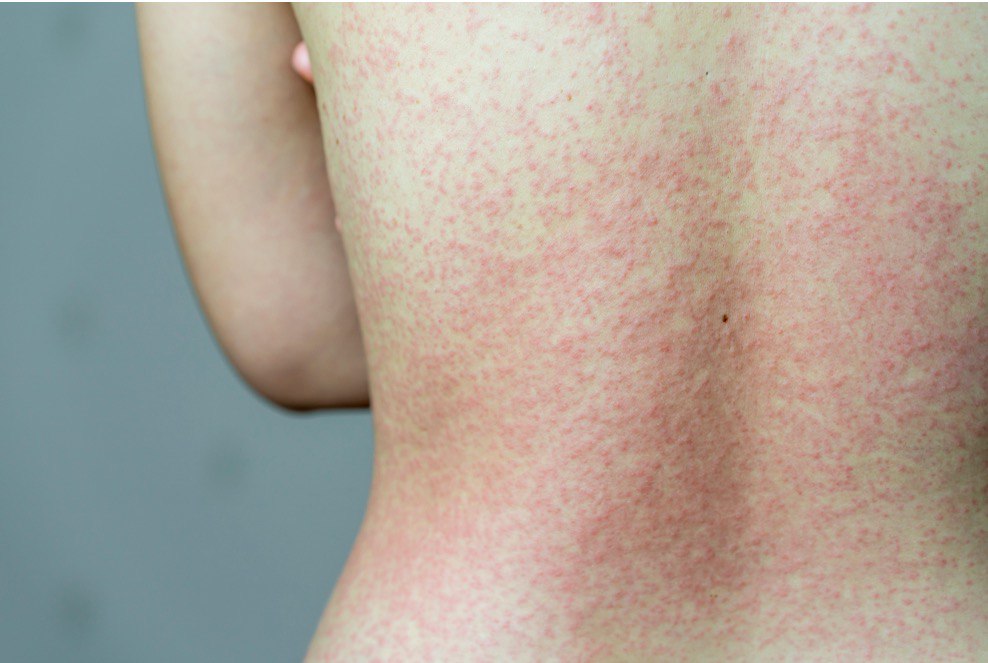
3. Childhood diseases accompanied by fever, colds, and rashes.
Fever is a distinctive feature of COVID-19, but the same symptoms can occur with many other childhood skin diseases.
- Chickenpox, also known as varicella, is a highly contagious disease caused by the initial infection with varicella-zoster virus (VZV). The disease results in a characteristic skin rash that forms small, itchy blisters, which eventually scab over. It usually starts on the chest, back, and face. Elevated body temperature is also a symptom of chickenpox. Chickenpox is caused by chickenpox virus infection.
- Measles. Initial symptoms typically include fever, often greater than 40 °C, cough, runny nose, inflamed eyes, and itchy rash consisting of papules. Measles is caused by the measles virus.
- Other childhood diseases that may be accompanied by fever and rash: scarlet fever, rubella.
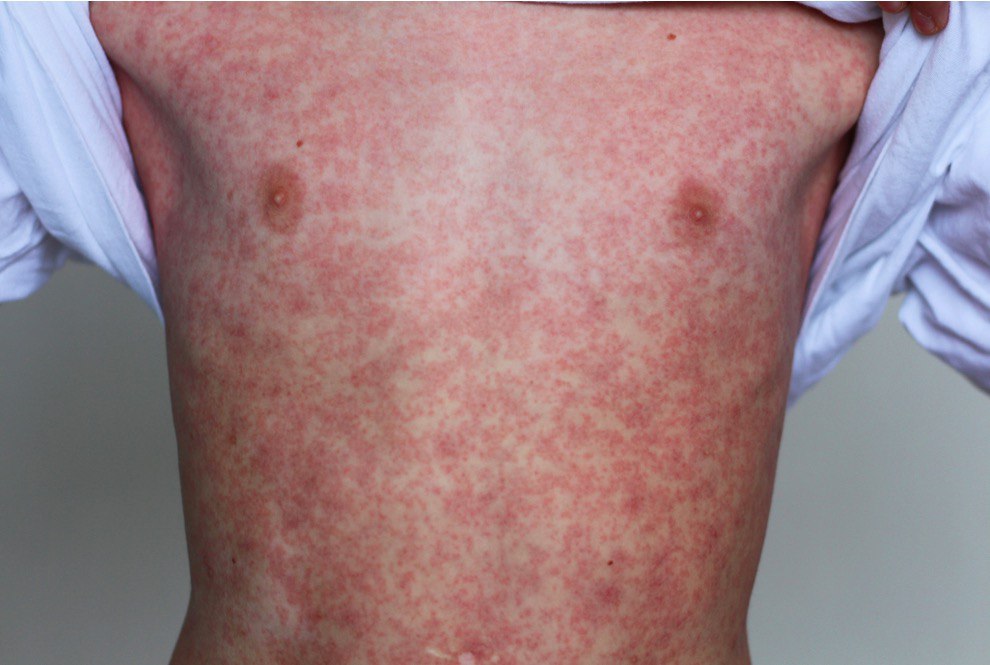
4. Feet lesions.
There have been numerous cases In France, Spain, and Italy, in which patients with Covid-19 showed marks on the feet that looked like small bruises or chickenpox acne. Italian and Spanish doctors believe that the occurrence of feet lesions may be a symptom of coronavirus infection. This version, in particular, was put forward by the Spanish Council of Orthopedists.
They noted that feet marks are more likely to occur on children. They do not exist in all cases, but their presence may be an occasion for coronavirus testing, Spanish orthopedists say.
Almost simultaneously, a similar discovery was made by a pediatric dermatologist from Italy, the newspaper Metro reports. A doctor from the Italian city of Bari, Mazzotta Troccoli, writes that marks on the feet appear on about every fifth patient.
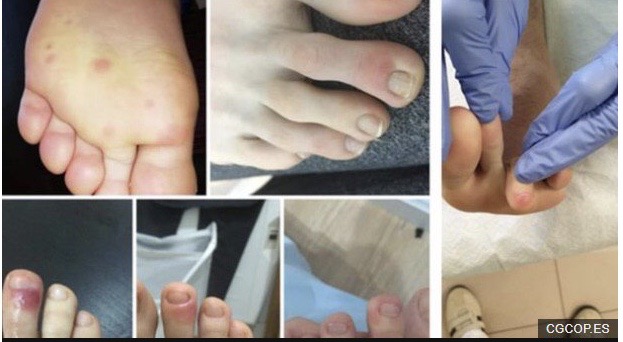
5. Exacerbation of the existing skin diseases.
The outbreak of coronavirus disease 2019 (COVID-19) may be stressful for people. Some skin diseases are more active in the face of stress or provoked by stress. Here we attach the list of stress-sensitive skin diseases:
- Acne
- Atopic eczema
- Simple chronic lichen
- Psoriasis
- Rosacea
6. Exacerbation of skin diseases provoked by special measures to prevent the spread of COVID-19.
- Hand eczema
Nowadays, we wash and sanitize our hands much more often than usual. This can lead to dry skin, itching, or even skin damage. As a result, eczema may develop in the form of redness, blisters, and cracks in the skin. Hand eczema can be a particular problem for healthcare professionals who currently work in hospitals with the extra workload.
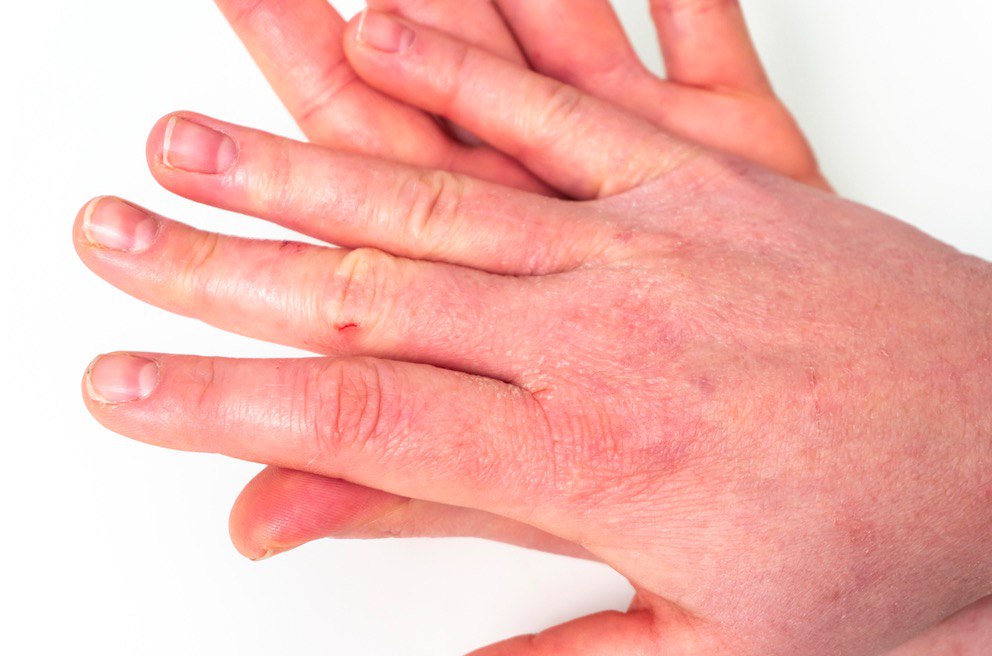
- Acne and rosacea
These conditions can be exacerbated by prolonged use of face protecting masks and other protective clothing. This is also a common problem among healthcare providers.
7. Psoriasis
During coronavirus, patients with severe psoriasis are especially sensitive to COVID-19. They are more likely than others to suffer from cardiac pathology, diabetes, and depression, which means they are at high risk. Do not take drugs that can further weaken the immune system, such as prednisolone, methotrexate, fumaric acid, and cyclosporine.
The above-mentioned drugs should be immediately agreed with the attending doctor, especially if there is a high risk of confirmation or if the coronaviral infection has already been confirmed.
We strongly advise you to stay home and follow the social distance rules!
Nowadays, dermatologists observe many different skin diseases. But there is still a lack of information about COVID-19. It’s difficult to establish if the revealed skin pathology is directly related to the body’s immune response to coronavirus infection or is it a manifestation of another viral disease (for example, chickenpox).
Skinive promotes a healthy lifestyle and reminds of the importance of skin health monitoring and early skin disease detection.
In case you have symptoms of a cold, or a fever of up to 38.0 degrees, contact your doctor or dermatologist as soon as possible and do not start self-treatment.
Source: Zheng Ya., Lai V. Dermatologists involved in the fight against COVID-19 in China.
Images and text: https://www.huidarts.com/huidaandoeningen/huiduitslag-bij-corona-covid-19/

